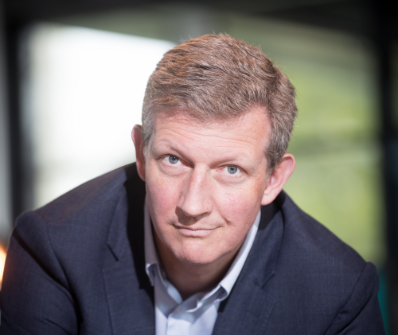Four questions for Eric Dewaet
In July 2020, Eric Dewaet started as CEO of Recupel. Dewaet brings extensive experience in supply chain management, which he accrued at VIL (the innovation cluster for logistics in Flanders) and Hospital Logistics, and other companies.
You were appointed CEO in July 2020 in the middle of the coronavirus crisis. How did that go?
Eric Dewaet – ‘I was fortunate that the coronavirus measures were a little more relaxed in the summer. So, I was able to physically meet all of the Recupel staff. I was quite taken by their commitment and drive. There are some 30 employees in our team and they are all aware of and very passionate about Recupel’s social role. Our service has also continued to run smoothly with teleworking thanks to their professionalism. This is an adjustment that should not be underestimated, not only for us but also for our partners who help us with the collection, transport, and processing of electronic waste.’
‘During the lockdown, many collection points, such as shops and recycling parks, were closed and this initially led to some calmer periods. Our partners made good use of this to prepare for telework or organise the workplace so it is safe. We were in very close contact with our partners to coordinate the fluctuations in the volumes collected due to the closure and reopening of collection points. This helped us solve problems quickly. During the lockdown, many garages, garden sheds, houses, and attics were tidied up. Our partners pulled out all the stops to handle the increased volume. We are very grateful to them for that.’
What achievements in 2020 are you proud of?
‘Despite the difficult conditions, together with our partners, we again collected a record amount of light bulbs and electrical and electronic equipment. This is a fantastic achievement given that 2019 was also a record year. We can also be proud of our recycling achievements. For years, these amounts have been well above the European targets for the recycling of discarded light bulbs and electrical and electronic equipment.’
‘We also worked hard on positioning the Recupel brand. Together with various stakeholders, we have refocused on what Recupel stands for and how we can best present this to the outside world. The first articulation of this is our latest campaign on light bulbs and light fixtures. In fact, our team was able to complete many of the planned projects in 2020 despite the coronavirus crisis. A terrific achievement.’
What is on the agenda for the coming years?
‘We are always raising the bar. We want to collect and recycle even more. In particular, the recovery of critical metals from discarded electrical and electronic equipment will become even more important in the years to come. Starting in 2018, we have also been experimenting with artificial intelligence to better sort devices and recycle them more efficiently in the future. We’re going to expand that even further.’
‘To encourage reuse, we’re also working with HERW!N and Ressources to encourage the recovery and reuse of electronic devices. We set up joint campaigns to encourage people to give devices that still work to a friend or acquaintance or take them to a second-hand shop. We now also have a new, interactive tool on the website that informs people of their rights and options with respect to having broken devices repaired.’
‘Our partners pulled out all the stops last year to handle large volumes. We are very grateful to them for that.’
What challenges do you face?
‘Like most European countries, Belgium did not meet the European collection targets. The target required all EU Member States to collect 65% of the average weight of what was placed on the market in the previous three years, or 85% of what was discarded, by 2019. Belgium is now at just over 50%. Of this, 20% slip through the wrong channels, such as household waste and scrap metal. We also don’t know what happens to 30% of it. To resolve this, we’ll have to join forces even more with all stakeholders.’
‘The diversity of technologies is also a challenge. At the moment, we receive a wide range of devices, from old cathode ray tubes with lead in the glass to plasma televisions. New technologies are also coming in all the time. Each of these also has its own risks. For example, flammable lithium batteries in laptops and smartphones. We work closely with our recycling partners to recycle all of these different technologies.’
‘But, I’m hopeful. A generation is growing up that is more aware of the importance of a circular economy, reuse, and recycling. I’m convinced that the young people of today will push hard for the circular economy.’

Eric Dewaet holds master's degrees in mining engineering and industrial policy from KU Leuven. In his career, he has accumulated almost 30 years of experience in supply chain management.